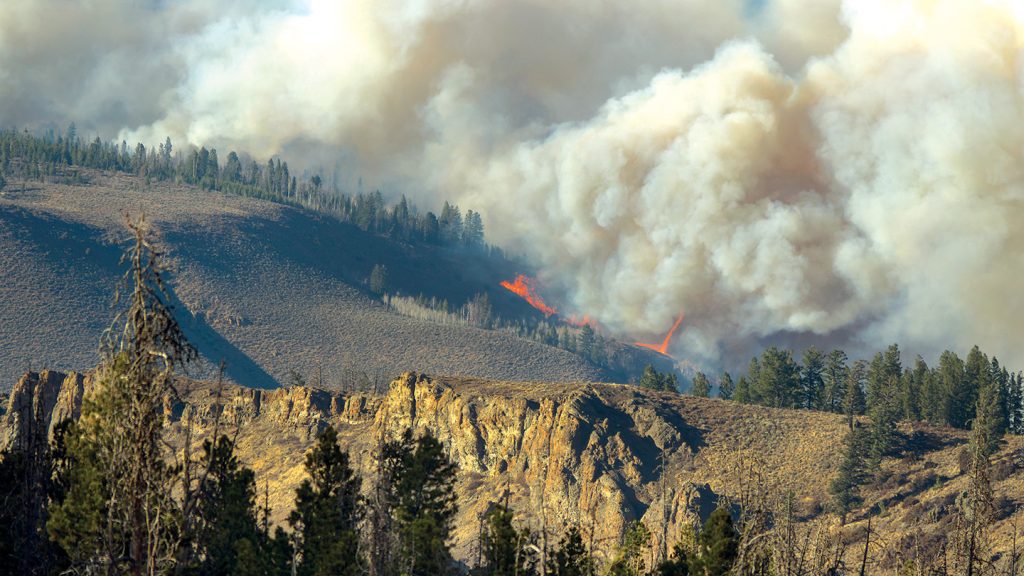Wildfires, an integral part of Earth’s ecosystems for hundreds of millions of years, have been significantly altered by human intervention, particularly in the United States over the past century. The suppression of naturally occurring fires, intended to protect human settlements and resources, has disrupted the natural cycle of vegetation clearing and renewal. This disruption has led to an accumulation of dead vegetation, which acts as fuel for increasingly catastrophic megafires. Compounding this issue is climate change, which extends fire seasons and creates drier, more flammable landscapes. This complex interplay of human actions and environmental changes necessitates a fundamental shift in how society interacts with and manages wildfire.
“United by Fire,” a podcast series produced by the Denver Museum of Nature & Science, delves into this critical issue. The fourth season of the “Laws of Notion” podcast, this series examines the devastating 2020 Cameron Peak and East Troublesome fires in Colorado, two of the largest in the state’s history. Through interwoven narratives from residents, fire ecologists, firefighters, and others directly impacted by the fires, the podcast provides a visceral and informative exploration of wildfire’s multifaceted nature. The series also incorporates historical and scientific context, enriching the listener’s understanding of the complex forces driving these increasingly destructive events.
The podcast explores the various dimensions of wildfires, focusing not just on the immediate destruction but also on the long-term consequences. From the impact on water quality to the logistical and emotional challenges of rebuilding communities, the series paints a comprehensive picture of wildfire’s ripple effects. The personal accounts shared throughout the episodes underscore the uncontrollable nature of these events and the inherent risks of living in fire-prone areas. Experts, like David Wolf, battalion chief of the City of Golden Fire Department, candidly acknowledge these risks, stating that living in mountainous regions comes with the unavoidable threat of wildfire.
“United by Fire” compels listeners to confront the difficult balancing act between personal desires and the risks associated with living in fire-adapted ecosystems. The podcast highlights how common aspirations, such as homeownership in picturesque, natural settings or an outdoor-focused lifestyle, can draw people to areas inherently vulnerable to wildfire. Host Kristan Uhlenbrock, who herself was drawn to Colorado by its outdoor opportunities, prompts listeners to consider the often-unacknowledged risks associated with these choices. The series emphasizes the importance of recognizing and evaluating the inherent dangers posed by natural forces, like wildfire, when making decisions about where to live and how to interact with the surrounding environment.
While the podcast offers a valuable overview of wildfire’s complexities, it acknowledges a gap in its representation of Indigenous perspectives. Indigenous communities, with their millennia-long history of coexisting with and managing fire in the landscape, possess invaluable knowledge and practices relevant to the discussion. Incorporating these voices would have further enriched the podcast’s narrative and provided crucial insights into traditional ecological knowledge and culturally informed fire management techniques.
Despite this omission, “United by Fire” serves as a comprehensive and thought-provoking introduction to the United States’ challenging relationship with wildfire. The podcast underscores the urgency of adapting to the evolving reality of wildfires in a changing climate. It urges listeners to move beyond the traditional approach of fire suppression and embrace a more nuanced, holistic perspective that incorporates scientific understanding, community engagement, and a recognition of the ecological role of fire. The podcast’s powerful storytelling and expert insights provide a crucial foundation for informed decision-making and a more sustainable coexistence with wildfire.
The narrative woven by “United by Fire” emphasizes the interconnectedness of human choices and environmental consequences. It highlights the need for a fundamental shift in perspective, moving away from a fear-driven approach to fire suppression and toward a more nuanced understanding of fire’s role in healthy ecosystems. The podcast reinforces the idea that adapting to the increasing frequency and intensity of wildfires requires a multifaceted approach that combines scientific research, community preparedness, and responsible land management practices. This transformative shift in human behavior is essential not only for protecting lives and property but also for restoring the ecological balance of fire-adapted landscapes.


